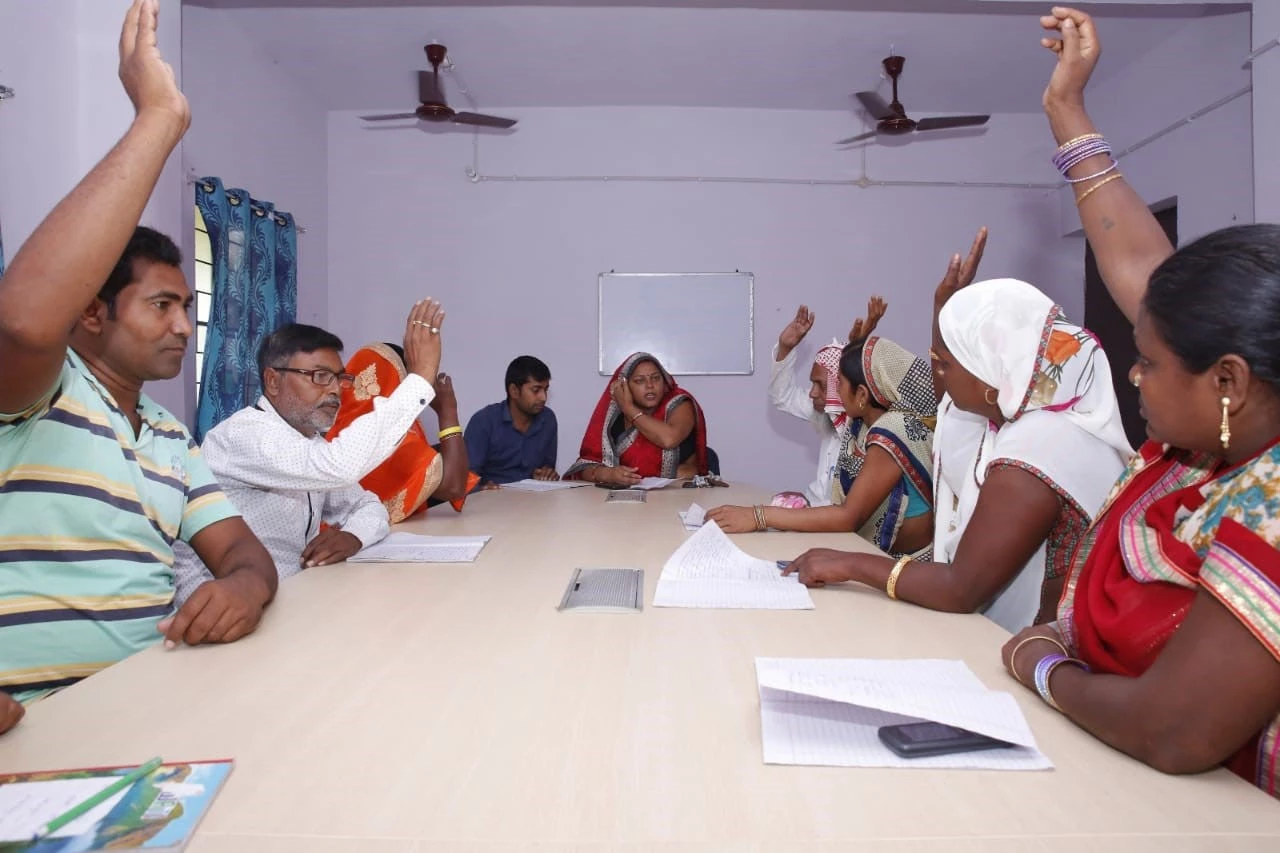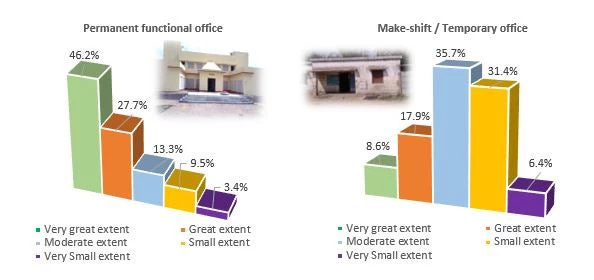
In a remote village in Bihar’s Bhojpur district, Sushumlata sits behind a spanking new desk in a newly-refurbished government building.
From the time she came to the village as a new bride, this young woman has chosen to get involved in community affairs by joining the Self Help Group (SHG) movement.
Later, armed with a master’s degree in social work, she joined active politics and, in 2016, was elected the Mukhiya, or head of the Dawan village Gram Panchayat – the local governance institution – under the seat reserved for women.
Sushumlata is the face of the government in this remote corner of Bihar. When we visit her in the newly upgraded Gram Panchayat building – refurbished under the World Bank (IDA) funded Bihar Panchayat Strengthening Project – she tells us how the newly painted and equipped building has made a difference.
A young man is busy on a computer beside her, helping an elderly gentleman apply for a government pension.
“Earlier, the Gram Panchayat buildings in Bihar were crumbling edifices that didn’t inspire any confidence in the people. In many districts, Gram Panchayat meetings were often held in old school buildings or in a make-shift temporary location. Sagging electric wires, chipped walls, and fragile rooftop presented a picture of neglect, and prevented the people from trusting these as government institutions.”
Instead, villagers visited the office of the Panchayat Secretary at the ‘Block’ office, often more than 10-15 km away, giving up a day’s work, losing wages and spending hard-earned money to get travel there.
But now that the government has a new ‘face’, Sushumlata tells us that local villagers readily come to this office to get birth and death certificates, apply for pensions, or complete any other paperwork that involves an interaction with the government.
Listening to Sushumlata, we wondered: Does making meaningful investments in institutions help establish their legitimacy, restore their prestige, and build people’s trust, confidence and pride in them?
We decided to do a survey[1] to answer a key question: “Can the construction of a local government office, equipped with manpower, furniture, fixtures, and other peripherals, help build responsive, inclusive, and accountable institutions?”
The survey findings bear this out. They show that where local government institutions have a permanent functioning office, the cost of accessing services from Gram Panchayats is reduced for local residents.
By contrast, in make-shift and temporary offices, citizens had to make several visits and wait much longer to access services. The larger the number of visits, the transaction costs were greater.
Focus group discussions revealed that in the face of these challenges, some poor people finally gave up on getting services, losing access to benefits and entitlements.
In his recent blog, Hartwig Schafer, World Bank Vice President for the South Asia Region, pointed out that, “Beyond monetary measurements, we also need to recognize that being poor is not defined just by a lack of income. Other aspects of life are critical for well-being, including education, access to basic utilities, healthcare, and security.”
Equally important we would argue is the need for responsive, inclusive and accountable institutions.
Here are four findings from our survey:
1. Inclusiveness: Accessibility to a local government office

Permanent offices constructed at a location according to the choice of the community (through Gram Sabha) are more accessible than the temporary offices. More than 70 percent of the respondents found permanent functional offices easily accessible.
2. Inclusiveness: Women feel safe and comfortable visiting a local government office

Over 60 percent of the female respondents felt less comfortable accessing the local governments with temporary office buildings which were either functioning out of the residence of the local government President or other public facilities.The perception of females regarding the permanent functional offices with waiting areas, separate toilets and breastfeeding rooms was highly positive in terms of security and comfort.

Local governments with permanent functional offices are more responsive by being available to accept applications in comparison to those with temporary office building. More than half of the respondents from local governments with permanent functional offices were able to submit their application within the first or second visit to the local office. Over four-fifths of the interviewed residents from local governments with temporary offices had to make two or more visits to the local government office for submitting their application.



Join the Conversation